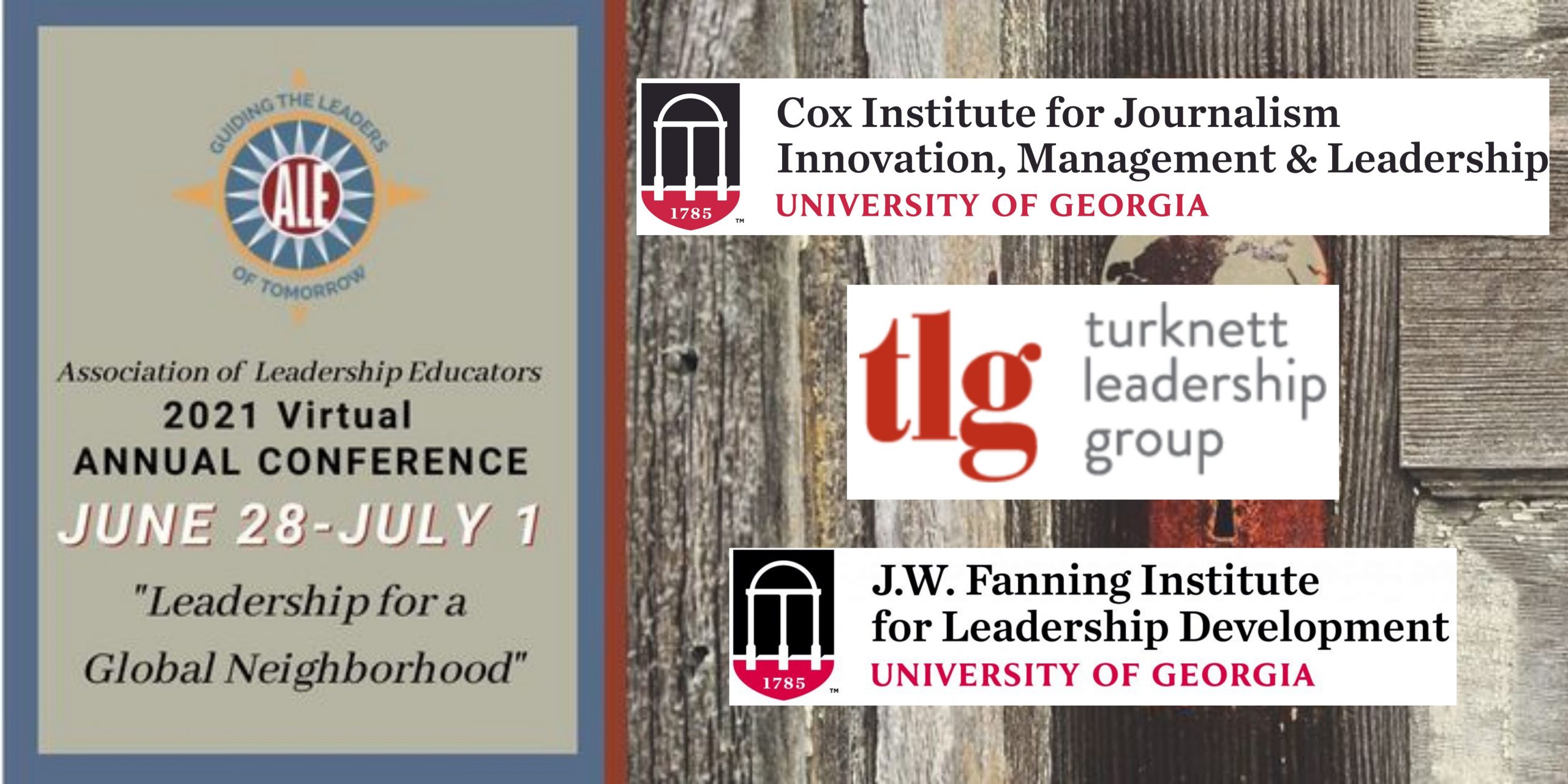Collaboration Led by Cox Institute Wins Distinguished Paper Award at ALE Conference

Collaboration Led by Cox Institute Wins Distinguished Paper Award at ALE Conference
A collaboration led by the James M. Cox Jr. Institute for Journalism Innovation, Management and Leadership received the Distinguished Paper Award for an innovative practice paper presented at the 2021 annual conference of the Association of Leadership Educators.
The peer-reviewed paper resulted from the Cox Institute’s collaboration with UGA’s J.W. Fanning Institute for Leadership Development and Atlanta-based Turknett Leadership Group, a private industry leadership development firm.
The three entities formed an academic-industry collaboration nearly two years ago to develop a student-centric leadership self-assessment tool using methodologies based on leadership self-efficacy theory. The collaborators developed an assessment tool that was tested successfully by participants in the Cox Institute’s Levin Leaders program in 2020 and 2021.
The project was documented in the conference paper entitled: “Applying Leadership Self-Efficacy Theory: Understanding the Innerworkings of Assessments by Creating Our Own.” Charlotte Norsworthy, who was a graduate assistant with the Cox Institute, was the paper’s lead author before her graduation with an M.A. in Journalism. The paper’s co-authors included Keith Herndon, director of the Cox Institute; Brittany Adams-Pope, public service faculty with the Fanning Institute; and Turknett Leadership Group’s Lyn Turknett and Lauren Harris.
“This paper was a fantastic meeting of the minds and demonstrates a collaborative effort into the exploration of self-assessment,” Norsworthy said. “Knowing yourself is such a powerful leadership tool, one that I’m excited we were able to dive into at the college student level.”
The paper explains a theoretical framework supporting leadership assessment — leadership self-efficacy theory and then describes its application using an exemplar self-assessment instrument, Gallup’s CliftonStrengths Assessment. The paper also explains how the collaborators developed their own assessment tool and the insights they gained about the effective use of self-assessments in the classroom.
“This collaboration was very effective. We created quite the dream team with contributors from both academia and industry, which allowed us to view our assessment project from both sides,” said Adams-Pope. “I was encouraged by the results from our initial testing, and I was excited to share this work with our peers in leadership education at this national conference.”
Herndon, who joined with Adams-Pope to present the paper at the virtual conference, expressed his gratitude for the work of the industry collaborators, Turknett and Harris. Herndon pointed to language from the paper to explain the importance of their contributions.
“We wanted to create an assessment tool that reflects business practices without relying too heavily on higher education definitions and expectations surrounding the term ‘assessment,’” the paper said. “Engaging with a firm whose primary clients are companies rather than colleges and universities was our way of mitigating these potential inherent biases.”
This was the second consecutive year a paper produced through the Cox Institute won an ALE Distinguished Paper award for an innovative practice. Last year, a paper co-authored by Norsworthy and Herndon entitled “Leading by Ear: Podcasting as an Educational Leadership Tool” won the award. That paper documented the pedagogical framework that underpins the work of The Lead, a podcast hosted and produced by Norsworthy as a student working with the Cox Institute.
